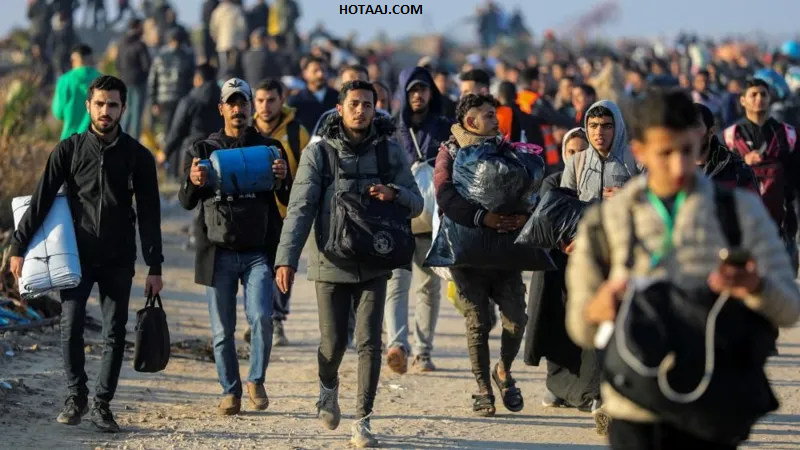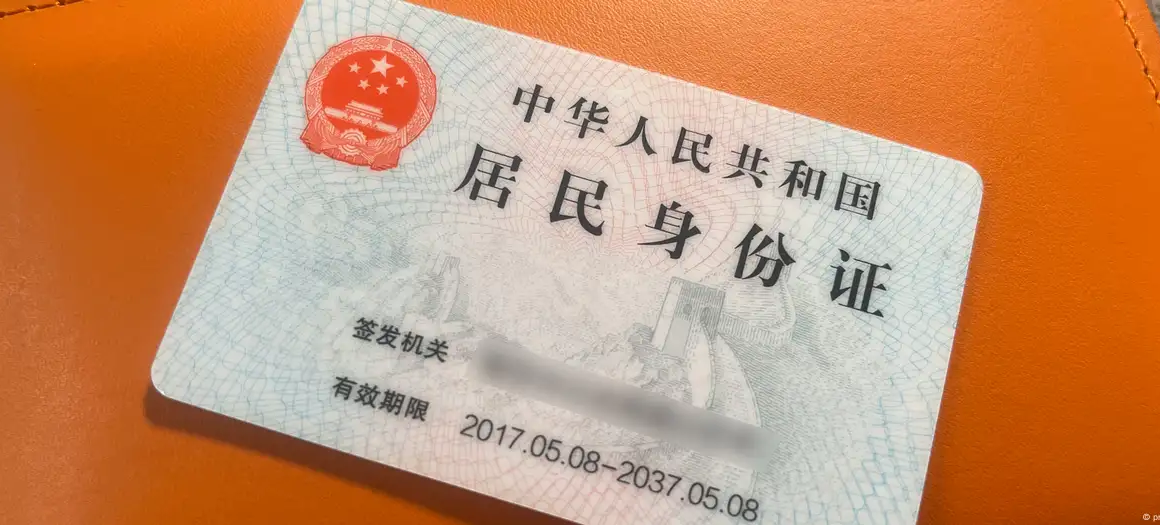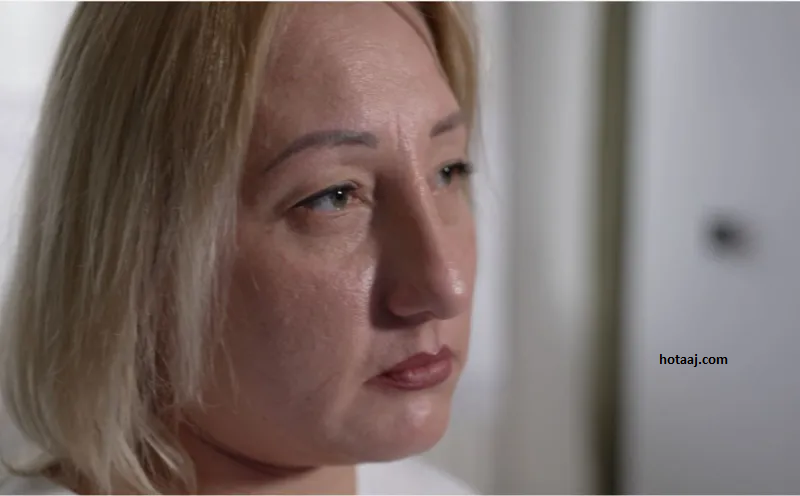
Svitlana, a 42-year-old woman living near Kyiv, speaks with unwavering resolve about her loyalty to Ukraine. “I never considered betraying my country, not for a second,” she asserts. “My husband would’ve never forgiven me.”
For more than two years, Svitlana had been anxiously waiting for news of her husband, Dima, a dedicated army medic who had been captured by Russian forces. During this agonizing period, she lived in uncertainty, hoping for his safe return.
Then, one day, she received a phone call that shook her world. The voice on the other end made a chilling proposition: If she committed treason against Ukraine, Dima might be treated better in his Russian prison, or possibly even released early.
Despite the painful temptation of possibly saving her husband, Svitlana’s loyalty to her country remained unshakable. She knew that betraying Ukraine was not an option, and she would not compromise her values or her husband’s honor.
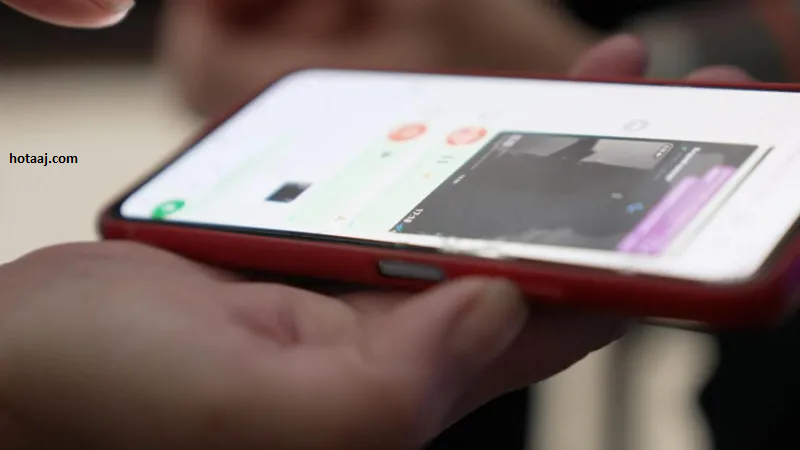
Svitlana recounts the disturbing phone call she received from a Ukrainian number that, at first, seemed unremarkable. “I picked up, and the man introduced himself as Dmitry,” she says. “He spoke in a Russian accent.” What followed was a chilling proposition.
Dmitry outlined several illegal acts she could carry out: setting fire to a military enlistment office, sabotaging a military vehicle, or even tampering with Ukrainian Railways’ electrical systems. The most sinister request was to reveal the locations of Ukraine’s vital air defense units — essential to protecting the country from Russian aerial threats.
As Dmitry made his demands, Svitlana’s mind raced back to the Ukrainian government’s advice for families in such situations: stall, gather evidence, and report it. She immediately started taking screenshots of the messages, later showing them to the BBC.
The Ukrainian Security Service (SBU) instructed Svitlana to continue the conversation and buy time while they investigated. So, she pretended to comply, saying she would set fire to a local railway line.
Sitting in her living room, where air raid sirens intermittently blare in the distance, Svitlana plays audio recordings for me. These are from two calls she made with Dmitry through the Telegram app, where he gave explicit instructions on how to make and plant a Molotov cocktail.
“Pour in a litre of lighting fluid and add a bit of petrol,” Dmitry tells her during one call. “Go to a railway junction. Make sure there are no security cameras. Wear a hat – just in case.”
He also coached her on how to avoid being tracked, advising her to put her phone on airplane mode once she was 1-2 km away from the target. “Do you know what a relay box is? Take a photo of it. This should be the target for her arson attack,” he added.
To prove she completed the task, Dmitry instructed her to write the date on a piece of paper and take a photo with it. As an incentive, he promised to arrange a phone call with her husband, or even have a parcel delivered to him in prison.
Despite the mounting pressure, Svitlana never wavered in her loyalty to Ukraine. She reported every step to the authorities, ensuring that Dmitry’s attempts to manipulate her would not succeed.
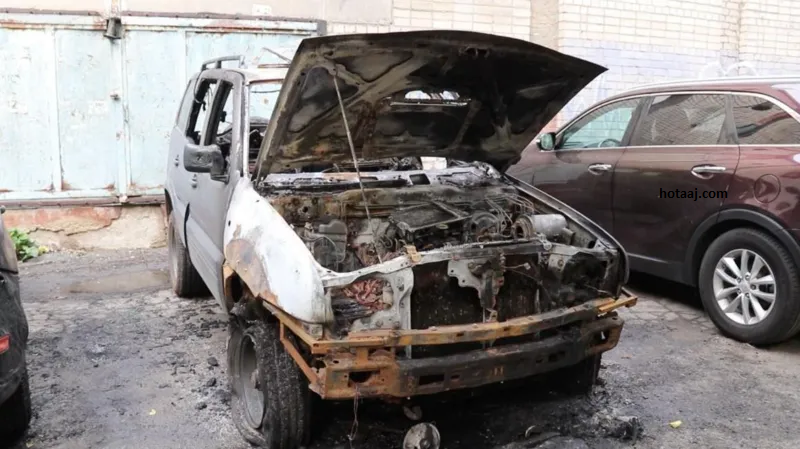
Svitlana’s resolve was tested when the SBU confirmed that Dmitry was indeed in Russia, and advised her to sever all contact with him. She did, telling Dmitry that she had changed her mind.
That’s when the threats escalated. “He said they’d kill my husband, and I’d never see him again,” Svitlana recalls. “For days, he kept calling, saying: ‘Your husband is being tortured, and it’s your fault!’”
When I ask how concerned she was that Dmitry might carry out his threats, Svitlana’s eyes moisten. “My heart ached, and I could only pray: ‘God, please don’t let that happen.’”
Svitlana’s emotions were torn between two conflicting thoughts. “One part of me said, ‘This person has no connection with the prisoners.’ But the other part asks, ‘What if he really can do it? How would I live with myself?’”
Her distress was palpable, grappling with the possibility of losing her husband while holding onto the belief that she had done the right thing.
In a statement to the BBC, the Ukrainian Security Service (SBU) made it clear that cooperating with Russian agents “will in no way ease the plight of the prisoner; on the contrary, it may significantly complicate their chances of being exchanged.”
The authorities urged all relatives of captured soldiers to immediately report any approaches by Russian agents, assuring that those who come forward would be “protected” and treated as victims. However, the SBU warned that if relatives agreed to sabotage or engage in espionage, they could face charges of treason, with a maximum punishment of life imprisonment.
The SBU regularly publicizes the arrests of Ukrainians who allegedly commit arson or disclose military locations to Russia. Pro-Kremlin media is rife with videos that claim to show Ukrainians committing acts of sabotage, like torching army vehicles or attacking railway infrastructure.
While some perpetrators may be motivated by money from suspected Russian agents, it is also believed that there are individuals driven by desperation, particularly relatives trying to secure the release of their loved ones held in Russian captivity.
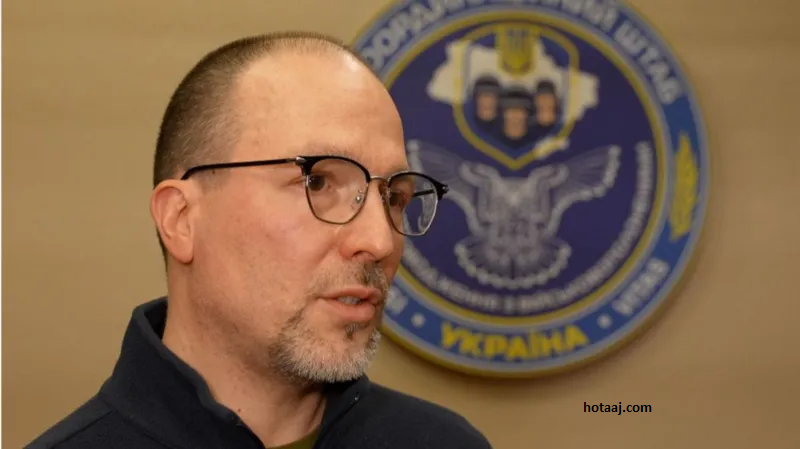
Petro Yatsenko, who works with the Ukrainian military’s Headquarters for the Treatment of Prisoners of War (PoWs), revealed that about 50% of all PoW families are contacted by Russian agents. He emphasizes the vulnerability of these families, noting that many are in desperate situations and may be willing to do anything to help their loved ones. However, Yatsenko and his team are working to educate them that cooperating with Russia will not benefit the prisoners’ situation.
Yatsenko explains that while an act like setting fire to a military vehicle might not cause significant damage to the Ukrainian Armed Forces, it poses a serious risk by destabilizing societal unity. More crucially, disclosing the location of air defence systems or other vital military assets is a substantial threat to Ukraine’s security.
Although the Ukrainian authorities do not disclose the exact number of PoWs, estimates suggest there are over 8,000 Ukrainians in captivity. Ukrainian intelligence sources shared with the BBC that the cases of relatives collaborating with Russia are relatively few.
In response to allegations of using PoW families as leverage, the Russian government denied the claims in a statement to the BBC. Russia asserts that it treats Ukrainian prisoners humanely, fully complying with the Geneva Convention. The Russian statement also accused Ukraine of using similar tactics, alleging that Ukrainian handlers are pressuring Russian citizens to commit acts of sabotage and arson within Russia, targeting critical infrastructure and civilian facilities.
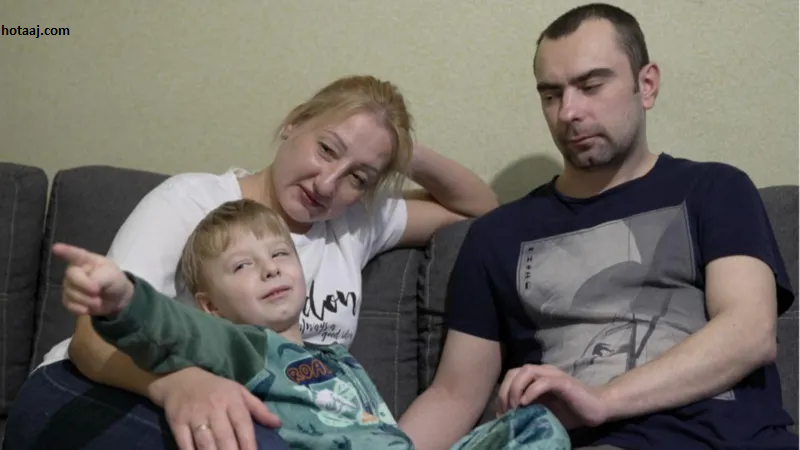
Svitlana’s husband, Dima, was released from captivity just over three months ago, and the couple is now joyfully reunited, spending quality time with their four-year-old son, Vova.
When asked how she felt when Dima was finally freed, Svitlana beams with happiness, saying, “There were tears of joy like I’ve never cried before. It felt like I had snatched my love from the jaws of death.”
Dima shared with her that the Russians did not act on their threats to harm him in retaliation for her refusal to cooperate. Svitlana was relieved, and when she told Dima about the calls she had received from Russian agents, he was shocked.
“He asked me how I held up,” Svitlana recalls with a wink. “Well, as I always say, I’m an officer’s wife.”
Courtesy: Will Vernon
References
- ^ Graham-Harrison, Emma and McCurry, Justin (10 October 2024). “North Koreans deployed alongside Russian troops in Ukraine, sources say”. The Guardian. Retrieved 10 October 2024.
- ^ Rainsford, Sarah (6 September 2023). “Ukraine war: Romania reveals Russian drone parts hit its territory”. Archived from the original on 23 February 2024. Retrieved 24 February 2024.
- ^ MacFarquhar, Neil (17 March 2024). “Five Takeaways From Putin’s Orchestrated Win in Russia”. The New York Times.
- ^ “Chernihiv: Are these Russia’s weapons of war?”. BBC News. 9 April 2022. Archived from the original on 3 May 2022. Retrieved 3 May 2022.
- ^ Gall, Carlotta; Kramer, Andrew E. (3 April 2022). “In a Kyiv Suburb,’They Shot Everyone They Saw'”. The New York Times. ISSN 0362-4331. Archived from the original on 12 April 2022. Retrieved 3 May 2022.
- ^ Bogner, Matilda (25 March 2022). “Situation in Ukraine. Statement delivered by the Head of Human Rights Monitoring Mission in Ukraine on the situation in Ukraine”. Office of the High Commissioner for Human Rights.
- ^ Budjeryn, Mariana (21 May 2021). “Revisiting Ukraine’s Nuclear Past Will Not Help Secure Its Future”. Lawfare. Archived from the original on 13 January 2024. Retrieved 16 January 2024.
- ^ Budjeryn, Mariana. “Issue Brief #3: The Breach: Ukraine’s Territorial Integrity and the Budapest Memorandum” (PDF). Woodrow Wilson International Center for Scholars. Archived (PDF) from the original on 5 March 2022. Retrieved 6 March 2022.
- ^ Vasylenko, Volodymyr (15 December 2009). “On assurances without guarantees in a ‘shelved document'”. The Day. Archived from the original on 29 January 2016. Retrieved 7 March 2022.
- ^ Harahan, Joseph P. (2014). “With Courage and Persistence: Eliminating and Securing Weapons of Mass Destruction with the Nunn-Luger Cooperative Threat Reduction Programs” (PDF). DTRA History Series. Defense Threat Reduction Agency. ASIN B01LYEJ56H. Archived from the original (PDF) on 28 February 2022. Retrieved 7 March 2022.
- ^ “Istanbul Document 1999”. Organization for Security and Co-operation in Europe. 19 November 1999. Archived from the original on 1 June 2014. Retrieved 21 July 2015.
- ^ Wiegrefe, Klaus (15 February 2022). “NATO’s Eastward Expansion: Is Vladimir Putin Right?”. Der Spiegel. ISSN 2195-1349. Archived from the original on 2 March 2022. Retrieved 28 February 2022.
- ^ Hall, Gavin E. L. (14 February 2022). “Ukraine: the history behind Russia’s claim that Nato promised not to expand to the east”. The Conversation. Archived from the original on 15 March 2022. Retrieved 14 March 2022.
- ^ Leung, Rebecca (11 February 2009). “Yushchenko: ‘Live And Carry On'”. CBS News. CBS. Archived from the original on 25 October 2012. Retrieved 17 April 2020.
- ^ “Study: Dioxin that poisoned Yushchenko made in lab”. Kyiv Post. London: Businessgroup. Associated Press. 5 August 2009. ISSN 1563-6429. Archived from the original on 31 January 2022. Retrieved 29 January 2022.
- ^ “Yushchenko to Russia: Hand over witnesses”. Kyiv Post. Businessgroup. 28 October 2009. ISSN 1563-6429. Archived from the original on 26 February 2022. Retrieved 11 February 2010.
- ^ “The Supreme Court findings” (in Ukrainian). Supreme Court of Ukraine. 3 December 2004. Archived from the original on 25 July 2013. Retrieved 7 July 2008.
- ^ “Ukraine-Independent Ukraine”. Encyclopædia Britannica Online. Encyclopædia Britannica. 15 January 2008. Archived from the original on 15 January 2008. Retrieved 14 January 2008.
- ^ Cordesman, Anthony H. (28 May 2014). “Russia and the ‘Color Revolution'”. Center for Strategic and International Studies. Archived from the original on 24 February 2022. Retrieved 4 March 2022.
- ^ “Putin calls ‘color revolutions’ an instrument of destabilization”. Kyiv Post. Interfax Ukraine. 15 December 2011. Archived from the original on 10 January 2023. Retrieved 4 March 2022.
- ^ Антиоранжевый митинг проходит на Поклонной горе [Anti-orange rally takes place on Poklonnaya Hill] (in Russian). RIA Novosti. 4 February 2012. Archived from the original on 2 March 2021. Retrieved 4 March 2022.
- ^ Brown, Colin (3 April 2008). “EU allies unite against Bush over Nato membership for Georgia and Ukraine”. The Independent. p. 24.
- ^ Evans, Michael (5 April 2008). “President tells summit he wants security and friendship”. The Times. p. 46.
President Putin, in a bravura performance before the world’s media at the end of the Nato summit, warned President Bush and other alliance leaders that their plan to expand eastwards to Ukraine and Georgia ‘didn’t contribute to trust and predictability in our relations’.
- ^ Wong, Edward; Jakes, Lara (13 January 2022). “NATO Won’t Let Ukraine Join Soon. Here’s Why”. The New York Times. Archived from the original on 10 May 2023. Retrieved 12 March 2022.
- ^ “Yanukovych tops list of presidential candidates in Ukraine – poll”. Ukrainian Independent Information Agency. 2 June 2009. Archived from the original on 25 February 2022. Retrieved 13 June 2009.
- ^ Harding, Luke (8 February 2010). “Yanukovych set to become president as observers say Ukraine election was fair”. The Guardian. Kyiv. ISSN 1756-3224. OCLC 60623878. Archived from the original on 27 February 2022.
- ^ “Parliament passes statement on Ukraine’s aspirations for European integration”. Kyiv Post. Interfax-Ukraine. 22 February 2013. Archived from the original on 11 January 2023. Retrieved 24 January 2024.
- ^ Dinan, Desmond; Nugent, Neil (eds.). The European Union in Crisis. Palgrave Macmillan. pp. 3, 274.
- ^ Walker, Shaun (22 September 2013). “Ukraine’s EU trade deal will be catastrophic, says Russia”. The Guardian. ISSN 0261-3077. Archived from the original on 24 July 2020. Retrieved 12 September 2023.
- ^ “Rada removes Yanukovych from office, schedules new elections for May 25”. Interfax-Ukraine. 24 February 2014. Archived from the original on 10 February 2020. Retrieved 25 February 2015.
- ^ Jump up to:a b “Ukraine President Yanukovich impeached”. Al Jazeera. 22 February 2014. Archived from the original on 7 September 2020. Retrieved 25 February 2015.
- ^ Sindelar, Daisy (23 February 2014). “Was Yanukovych’s Ouster Constitutional?”. Radio Free Europe/Radio Liberty. Archived from the original on 29 July 2020. Retrieved 25 February 2014.
- ^ Feffer, John (14 March 2014). “Who Are These ‘People,’ Anyway?”. The Huffington Post. Archived from the original on 18 March 2014. Retrieved 17 March 2014.
- ^ Traynor, Ian (24 February 2014). “Western nations scramble to contain fallout from Ukraine crisis”. The Guardian. Archived from the original on 23 February 2014. Retrieved 25 February 2015.
- ^ На отмену закона о региональных языках на Украине наложат вето [The abolition of the law on regional languages in Ukraine will be vetoed] (in Russian). Lenta.ru. 1 March 2014. Archived from the original on 28 February 2022. Retrieved 25 February 2015.
- ^ Ayres, Sabra (28 February 2014). “Is it too late for Kyiv to woo Russian-speaking Ukraine?”. The Christian Science Monitor. Archived from the original on 7 January 2022. Retrieved 25 February 2015.
- ^ Jump up to:a b c d e f Kofman, Michael (2017). Lessons from Russia’s Operations in Crimea and Eastern Ukraine (PDF). Santa Monica, CA: RAND Corporation. ISBN 978-0-8330-9617-3. OCLC 990544142. Archived (PDF) from the original on 17 February 2022. Retrieved 28 September 2021.
By March 26, the annexation was essentially complete, and Russia began returning seized military hardware to Ukraine.
- ^ Polityuk, Pavel; Robinson, Matt (22 February 2014). Roche, Andrew (ed.). “Ukraine parliament removes Yanukovich, who flees Kyiv in ‘coup'”. Reuters. Gabriela Baczynska, Marcin Goettig, Peter Graff, Giles Elgood. Archived from the original on 9 June 2016. Retrieved 18 November 2020.
- ^ “Yanukovich poshel po stopam Yushchenko – sudy opyat’ otbirayut mayaki u rossiyskikh voyennykh” Янукович пошел по стопам Ющенко – суды опять отбирают маяки у российских военных [Yanukovych followed in Yushchenko’s footsteps – courts again take away beacons from Russian military]. DELO (in Russian). 11 August 2011. Archived from the original on 29 January 2022. Retrieved 26 November 2020.
- ^ Stephen, Chris (16 January 2006). “Russian anger as Ukraine seizes lighthouse”. Irish Times. Archived from the original on 26 May 2022. Retrieved 20 May 2022.
- ^ Kimball, Spencer (11 March 2014). “Bound by treaty: Russia, Ukraine, and Crimea”. Deutsche Welle. Archived from the original on 25 November 2015. Retrieved 17 December 2020.
- ^ Янукович віддав крим російському флоту ще на 25 років. Ukrainska Pravda (in Ukrainian). Archived from the original on 4 March 2022. Retrieved 3 February 2022.
- ^ Pullen, R.; Frost, C. (3 March 2022). “Putin’s Ukraine invasion – do declarations of war still exist?”. The Conversation. Archived from the original on 17 April 2022. Retrieved 22 April 2022.
- ^ “Ukraine’s envoy says Russia ‘declared war'”. The Economic Times. Associated Press. 24 February 2022. Archived from the original on 25 April 2022. Retrieved 24 January 2024.
- ^ “‘No other option’: Excerpts of Putin’s speech declaring war”. Al Jazeera. 24 February 2022. Archived from the original on 1 March 2022. Retrieved 24 January 2024.
- ^ Sheftalovic, Zoya (24 February 2022). “Battles flare across Ukraine after Putin declares war Battles flare as Putin declares war”. Politico Europe. Archived from the original on 24 February 2022. Retrieved 22 April 2022.
- ^ “Verkhovna Rada recognized Russia as a terrorist state”. ukrinform.net. 15 April 2022. Archived from the original on 18 April 2022. Retrieved 24 January 2024.
- ^ Wuerth, Ingrid (22 February 2022). “International Law and the Russian Invasion of Ukraine”. Lawfare. Archived from the original on 21 October 2023. Retrieved 10 March 2022.
- ^ Bellinger III, John B. (28 February 2022). “How Russia’s Invasion of Ukraine Violates International Law”. Council on Foreign Relations. Archived from the original on 9 March 2022. Retrieved 10 March 2022.
- ^ Hannum, Hurst. “International law says Putin’s war against Ukraine is illegal. Does that matter?”. The Conversation. Archived from the original on 7 March 2022. Retrieved 8 March 2022.
- ^ Neal, Jeff (2 March 2022). “The Ukraine conflict and international law”. Harvard Law Today. Interviewees: Blum, Gabriella & Modirzadeh, Naz. Archived from the original on 5 March 2022. Retrieved 10 March 2022.
- ^ Weiner, Allen S. (24 February 2022). “Stanford’s Allen Weiner on the Russian Invasion of Ukraine”. Stanford Law School Blogs. Q&A with Driscoll, Sharon. Archived from the original on 8 March 2022. Retrieved 8 March 2022.
- ^ Dworkin, Anthony (25 February 2022). “International law and the invasion of Ukraine”. European Council on Foreign Relations. Archived from the original on 9 March 2022. Retrieved 10 March 2022.
- ^ Wilmhurst, Elizabeth (24 February 2022). “Ukraine: Debunking Russia’s legal justifications”. Chatham House. Archived from the original on 1 March 2022. Retrieved 10 March 2022.
- ^ Attributed to multiple references:[48] [49] [50] [51] [52] [53] [54]
- ^ Ranjan, Prabhash; Anil, Achyuth (1 March 2022). “Debunking Russia’s international law justifications”. The Hindu. Archived from the original on 29 April 2022. Retrieved 13 April 2023.
- ^ Troconis, Jesus Eduardo (24 February 2022). “Rusia está fuera de la ley internacional”. Cambio16. Archived from the original on 23 February 2022. Retrieved 13 April 2023.
- ^ Gross, Judah Ari (27 February 2022). “Israeli legal experts condemn Ukraine invasion, say it’s illegal under international law”. Times of Israel. Archived from the original on 21 March 2022. Retrieved 13 April 2023.
- ^ McIntyre, Juliette; Guilfoyle, Douglas; Paige, Tamsin Phillipa (24 February 2022). “Is international law powerless against Russian aggression in Ukraine? No, but it’s complicated”. The Conversation. Archived from the original on 25 February 2022. Retrieved 13 April 2023.
- ^ Dannenbaum, Tom (10 March 2022). “Mechanisms for Criminal Prosecution of Russia’s Aggression Against Ukraine”. Just Security. Archived from the original on 16 April 2022. Retrieved 14 March 2022.
- ^ Colangelo, Anthony J. (4 March 2022). “Putin can be prosecuted for crimes of aggression – but likely not any time soon”. The Hill. Archived from the original on 11 April 2022. Retrieved 13 April 2023.
- ^ *“Ukraine v. Russia (re Crimea) (decision)”. European Court of Human Rights. January 2021. Archived from the original on 22 February 2024. Retrieved 22 February 2024.
The Ukrainian Government maintains that the Russian Federation has from 27 February 2014 exercised effective control over the Autonomous Republic of Crimea and the city of Sevastopol … There was sufficient evidence that during the relevant period the respondent State [Russia] had exercised effective control over Crimea.
- Sasse, Gwendolyn (2023). Russia’s War Against Ukraine. Wiley & Sons. p. 2004.
Russia’s war against Ukraine began with the annexation of Crimea on 27 February 2014. On that day, Russian special forces without any uniform insignia appeared in Crimea, quickly taking control of strategic, military and political institutions.
- Käihkö, Ilmari (2023). Slava Ukraini!: Strategy and the Spirit of Ukrainian Resistance 2014–2023. Helsinki University Press. p. 72.
If asked when the war began, many Ukrainians believe it was when the unmarked Russian ‘little green men’ occupied Crimea on February 27, 2014, or February 20, the date given on the official Russian campaign medal ‘For the Return of Crimea’.
- Sasse, Gwendolyn (2023). Russia’s War Against Ukraine. Wiley & Sons. p. 2004.
- ^ Cathcart, Will (25 April 2014). “Putin’s Crimean Medal of Honor, Forged Before the War Even Began”. The Daily Beast. Archived from the original on 25 February 2022. Retrieved 3 February 2022.
- ^ Jump up to:a b “The Russian Invasion of the Crimean Peninsula 2014–2015” (PDF). Johns Hopkins University. Archived (PDF) from the original on 6 February 2022. Retrieved 24 September 2021.
- ^ “10 facts you should know about russian military aggression against Ukraine”. Ukraine government. Archived from the original on 24 February 2022. Retrieved 24 September 2021.
- ^ Lessons from Russia’s Operations in Crimea and Eastern Ukraine Archived 17 February 2022 at the Wayback Machine, p. 19, published by RAND Corporation in 2017. “Ukraine’s government was in transition following the ouster of Yanukovych. As a result, it did not react to the Russian operation when launched. Russia’s task was made relatively easy by the confusion and chaos that generally follows an uprising, such as what happened in Kyiv. Moscow capitalized on the tensions and uncertainty in Crimea, as well as on the inexperience of Ukraine’s provisional government. Meeting notes of the discussion among Ukrainian leadership reveal a great deal of anxiety, uncertainty, and unwillingness to take action for fear of escalation.”
- ^ Jump up to:a b DeBenedictis, Kent (2022). Russian ‘Hybrid Warfare’ and the Annexation of Crimea. Bloomsbury Publishing. p. 140.
During the night of 26–27 February, Russian special forces without insignia departed Sevastopol … They arrived at the Crimean Rada and Council of Ministers buildings in Simferopol, disarmed the s












